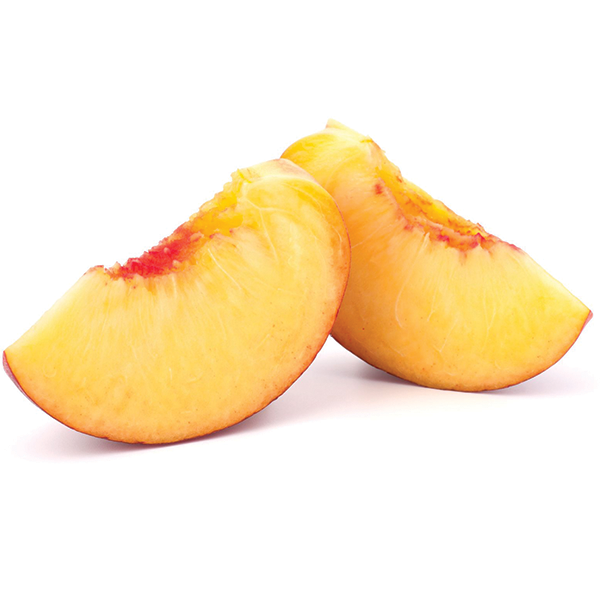
Organic peaches are growing in popularity, showing an increasing demand for the sweet summertime fruit. Including organic peaches in a comprehensive organic stone fruit program can add profits to your bottom line.
Promote the organic growing practices involved in growing organic peaches. Peaches are an item that are eaten with the skin on so health- and environmentally conscious consumers may be swayed by the diminished use of pesticides.
Peaches are a summertime favorite, so promote organic peaches heavily during their peak season. Include them in promotions with organic baking goods and with other organic fruit as part of a fruit salad.
Promote organic peaches to parents as a tasty treat for the kids. Suggest that kids take peaches in their lunch boxes or eat them as an after-school snack.
Organic peaches can also make a tasty addition to a green salad. Include them in summertime salad promotions and cross-merchandise them with organic bagged salads.
Display organic peaches with other organic stone fruit like nectarines, plums and apricots. Create a large stone fruit display with conventional product on one side of the table and organic on the other, with appropriate barriers in between.
Include both white-flesh and yellow-flesh peaches on your display. Be sure to clearly label them. Consider offering samples so shoppers can taste the difference between the two types.
Organic peaches are fragile. Don’t stack or dump fruit on the display. Remove bruised or damaged fruit quickly.
Place organic plums between organic peaches and nectarines to keep consumers from getting confused by the similarity in looks of organic peaches and nectarines.
Include ripening information on your display so consumers know how to ripen the fruit at home.
Shipping
Organic peaches are commonly shipped in 18-pound cartons. Yellow peaches are also available in 60- or 64-count and 70- or 72-count cartons.
Grades
United States
U.S. Fancy
U.S. Extra No. 1
U.S. No. 1
U.S. No. 2
Washington
Washington Extra Fancy
Washington Fancy
Washington No. 2
Handling
Temperature: shipping point and in transit, 32 to 34 F (0 to 1 C); receiving, 51 to 77 F (10.6 to 25 C)
Relative humidity: 90-95%
Mist: no
Typical shelf life: 14 to 21 days
Ethylene producer (Do not store or transport ethylene-sensitive items with commodities that produce ethylene.)
Highly sensitive to freezing injury. (Likely to suffer injury by one light freezing.)
The popular red blush may be present on peaches in varying degrees depending upon the variety, but it is not a true sign of maturity.